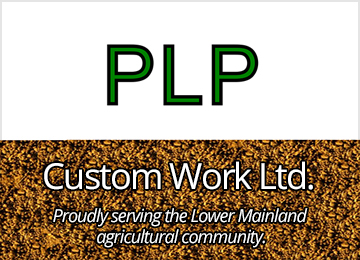Paul Pryce
Asia has a ravenous appetite for pork—South Koreans reportedly consumed 1.08 million tons of pork in 2012 while Japan consumed roughly 2.53 million tons the same year. For its part, China eats 53 million tons of pork annually, accounting for approximately half of the world’s annual pork consumption. With trade agreements in the works between Canada and Asia-Pacific countries, one might be inclined to think British Columbia is well-positioned to satisfy some of that demand for pork products. After all, the distance between Vancouver and Tokyo is shorter than the distance between Sydney, Australia and the Japanese capital. Unlike many jurisdictions in the United States, BC has also managed to protect itself from the spread of Porcine Epidemic Diarrhea (PED) virus.
The State of the Hog Industry
The fact is, the BC hog industry may be unable to compete in the Asian marketplace due to chronically high feed prices. As BC is a grain and protein deficient province, swine producers are left at the mercy of freight costs in order to obtain adequate feed, usually employing a diet of feed barley, wheat, peas, and soybean meal for protein, with much of this coming from out of province. In 2012, the situation became so severe that the BC Pork Producers Association reported an average 23% loss in revenue per hog. A move by Donald’s Fine Foods to Saskatchewan in 2010, as well as the closure of Ritchie-Smith Feeds and Rick Thiessen that year, led to a loss of about one-third of BC pork production.
Nonetheless, a small industry of hog farmers continues to soldier on despite the cost pressures; in 2012, BC produced approximately 290,000 head, comprising 1.3% of Canada’s total hog production that year. It stands to reason that this production could grow and that BC could ultimately join Alberta and Saskatchewan as an exporter if alternative feeds can be found, helping to drive down production costs. The Peace River region—which produces the majority of BC’s hogs—accounts for 21.8% of provincial land but only 1.7% of the population, which should mean some opportunity for pasturing and “hogging off”—self-harvesting grain and foraging fields. A recently concluded three-year study by Auburn University in Alabama found that a well-managed pasture program can satisfy the majority of a sow’s dietary needs. However, pasturing carries its own risks and disadvantages, including increased work on the part of the farmer. A sow will also be easier to content due to lower energy needs and a large digestive tract.
The Alternative Feed Solution?
BC produced 935 tons of alfalfa hay in 2013, which could be an alternative feed. But this, too, comes with risks attached as moldy alfalfa can cause abortions. As BC produces soybeans (though on an admittedly smaller scale than other provinces), the soybean meal that accounts for the protein in hog feed could be supplemented by soybean hulls, which a 2013 US National Pork Board study demonstrated could be a viable source of energy and fibre. But the same study found that hogs show less gains overall if soybean hulls account for more than 5% of the diet and that high demand for soy products means higher prices for soybean hulls even without the issue of freight costs.
In lieu of a program by the industry or provincial government to find viable, locally grown alternatives to the grain feeds currently brought in from elsewhere in the country, the future of BC hog production may lie in a partnership with Alberta. Due to its milder climate, BC is ideally suited for the production of weaner pigs which can be finished in Alberta where grain is more affordable. This would certainly alleviate some of the cost pressures, allowing BC hog farmers to ramp up production and play a role in feeding the growing global middle class.
This article will be appearing in our Fall 2015 issue of Modern Agriculture. SUBSCRIBE NOW to have all of our latest stories delivered to your door for FREE!
[infobox title=’Paul Pryce’] Paul Pryce is political advisor to the Consul General of Japan in Calgary, in which role his responsibilities include enhancing agricultural ties between Japan and Western Canada. Previously, through his affiliation with UPH Analytics, a research institute at Indonesia’s leading private university, Paul wrote widely on production and price trends in Southeast Asia’s agricultural industry. You can connect with him via email: paul.l.pryce@gmail.com.[/infobox]
Paul Pryce is political advisor to the Consul General of Japan in Calgary, in which role his responsibilities include enhancing agricultural ties between Japan and Western Canada. Previously, through his affiliation with UPH Analytics, a research institute at Indonesia’s leading private university, Paul wrote widely on production and price trends in Southeast Asia’s agricultural industry. You can connect with him via email: paul.l.pryce@gmail.com.[/infobox]












